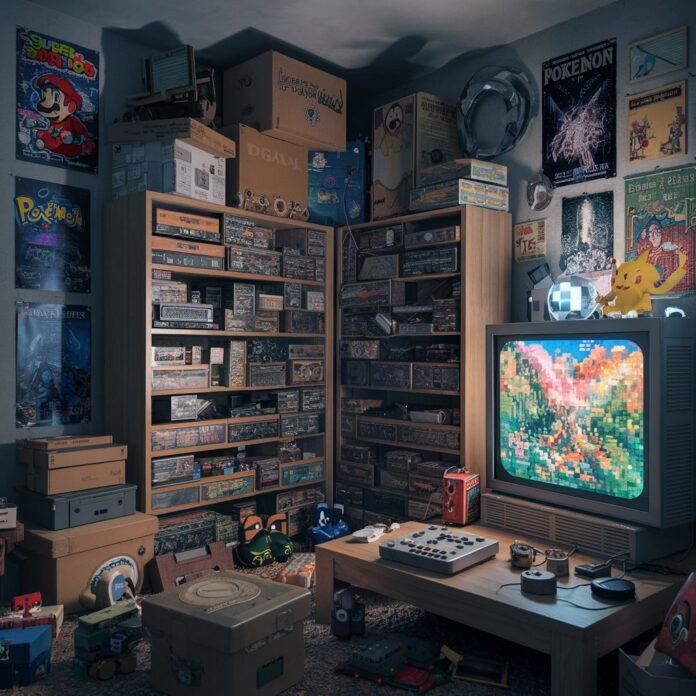Introduction
In the fast-moving world of video games, where new releases dominate headlines and technology advances at a breakneck pace, there exists a crucial need to preserve the medium’s rich history. The Game Archives is a celebration of gaming’s journey—from the bleeps and bloops of early arcade cabinets to the cinematic masterpieces of today. This article explores why archiving games matters, how it impacts culture, and what efforts are being made to ensure that future generations can experience the titles that shaped the industry. Whether you’re a lifelong gamer, a history enthusiast, or someone curious about the evolution of interactive entertainment, join us as we delve into the importance of safeguarding gaming’s past while looking toward its future.
1. The Importance of Game Preservation: More Than Just Nostalgia
Video games are not just products of entertainment; they are cultural artifacts that reflect the technology, creativity, and societal trends of their time. However, unlike books or films, games face unique preservation challenges—obsolete hardware, lost source code, and digital storefront closures threaten to erase entire eras of gaming history. Organizations and fan-driven initiatives work tirelessly to archive ROMs, document development stories, and restore abandoned games before they vanish forever. The Game Archives highlights these efforts, emphasizing why preserving games is essential not just for sentimental value, but for understanding the evolution of art, storytelling, and interactive design. Without these archives, future generations might never experience the groundbreaking titles that defined gaming’s golden ages.
2. A Journey Through Gaming Eras: From Pong to Open Worlds
The history of video games is a tale of constant innovation, with each generation introducing new possibilities. The 1970s and ’80s birthed arcade classics like Pac-Man and home console pioneers such as Super Mario Bros., establishing foundational gameplay mechanics. The ’90s saw the leap into 3D with Super Mario 64 and Final Fantasy VII, revolutionizing immersion and narrative depth. The 2000s brought online multiplayer into the mainstream, while the 2010s and beyond have embraced open-world exploration, photorealistic graphics, and virtual reality. The Game Archives chronicles these milestones, examining how technological advancements and creative risks transformed gaming from simple pixelated pastimes into a dominant force in global entertainment.
3. Lost and Forgotten Games: Rescuing Gaming’s Hidden Treasures
For every Legend of Zelda or Halo, there are countless games that slipped through the cracks—unreleased prototypes, obscure cult classics, and ambitious titles that were ahead of their time. Some, like EarthBound, were initially commercial failures before being rediscovered and revered. Others, such as PT (the canceled Silent Hills demo), exist only as fragments of what could have been. The Game Archives explores the stories behind these lost games, the archivists working to recover them, and why preserving even “failed” experiments is crucial to understanding gaming’s full creative spectrum. These forgotten titles often contain groundbreaking ideas that later influenced the industry in unexpected ways.
4. The Legal and Ethical Challenges of Game Archiving
While the passion for preserving games is strong, the legal landscape remains murky. Copyright laws, proprietary software, and corporate ownership often clash with preservation efforts, leaving many classic games in legal limbo. Should abandonware be freely archived if the original developers no longer profit from it? How can museums and historians legally exhibit old games without running into licensing issues? The Game Archives delves into these debates, discussing the balance between intellectual property rights and cultural preservation. Solutions such as official re-releases, emulation exemptions, and partnerships with rights holders offer hope, but the fight to legitimize game archiving is far from over.
5. How You Can Help: Supporting Game Preservation Efforts
Preserving gaming history isn’t just the responsibility of archivists—players, collectors, and fans all play a role. Simple actions, such as backing up physical copies, supporting official remasters, or contributing to crowdfunded restoration projects, can make a difference. Digital libraries like the Internet Archive and enthusiast communities dedicated to ROM preservation rely on public participation to grow their collections. The Game Archives provides practical ways for readers to get involved, whether through donations, volunteering, or simply spreading awareness about the cause. After all, gaming’s legacy belongs to everyone who has ever picked up a controller—and it’s up to us to ensure it endures.
Conclusion: Why The Game Archives Matter for the Future
Video games are more than fleeting entertainment; they are a living history of creativity, technology, and human connection. The Game Archives serves as a bridge between generations, ensuring that the games we love today remain accessible and appreciated decades from now. As the industry continues to evolve, the need for preservation grows ever more urgent—not just for nostalgia’s sake, but to inspire future developers, educate historians, and honor the artistry that defines this medium. Whether through official channels, grassroots efforts, or individual contributions, we all have a part to play in safeguarding gaming’s legacy. The story of video games is still being written, but with dedicated archives, none of its chapters will ever be lost.



